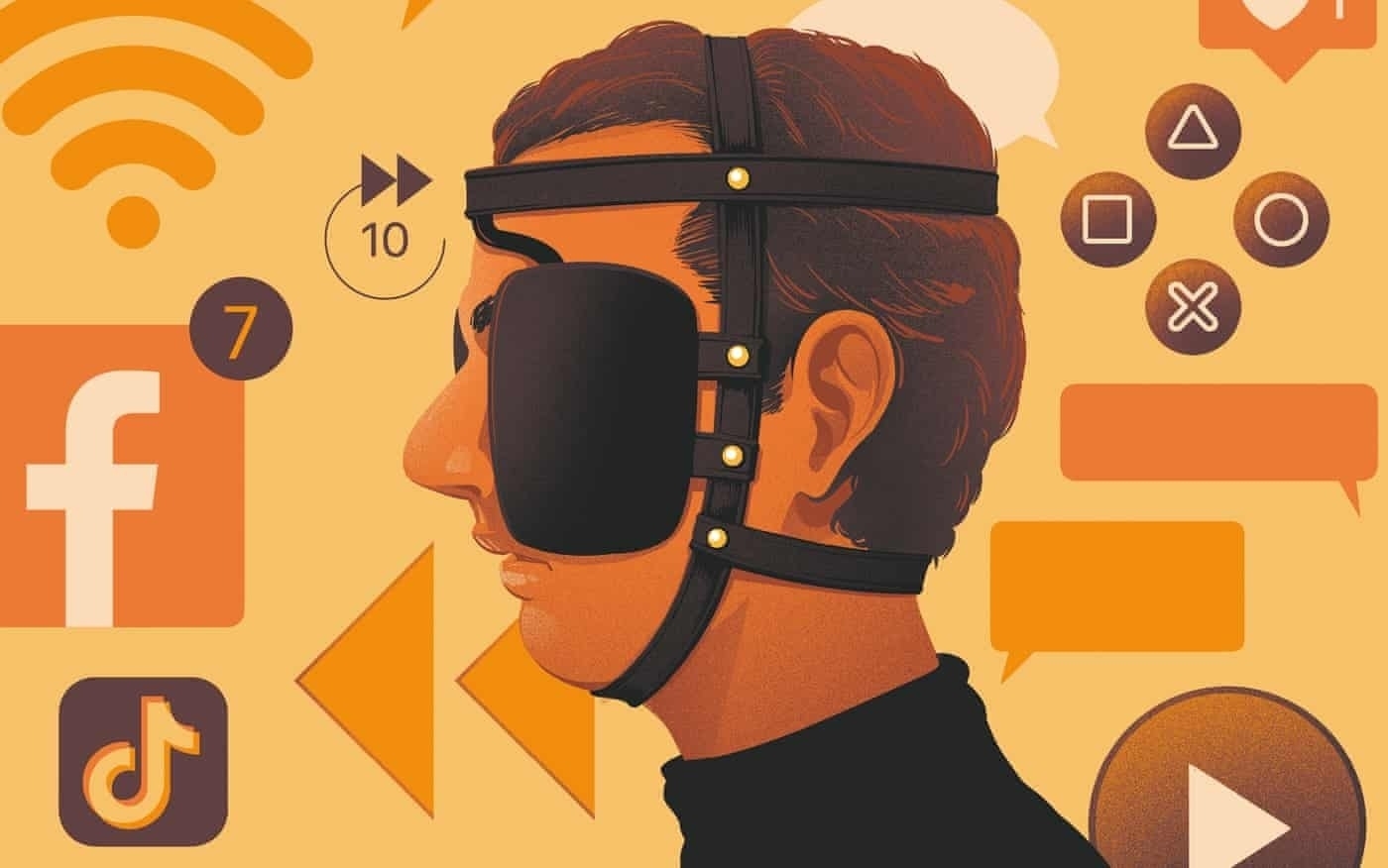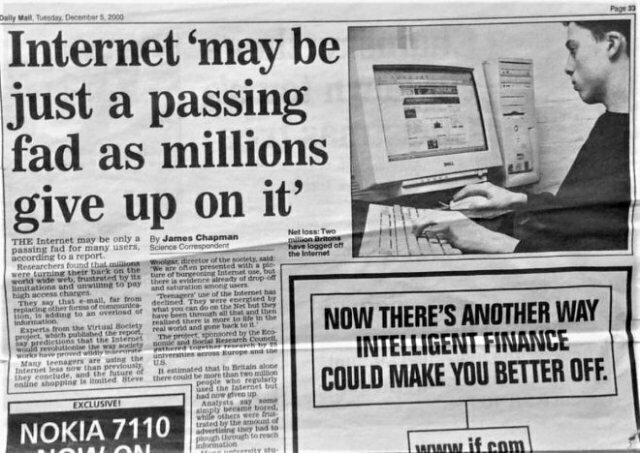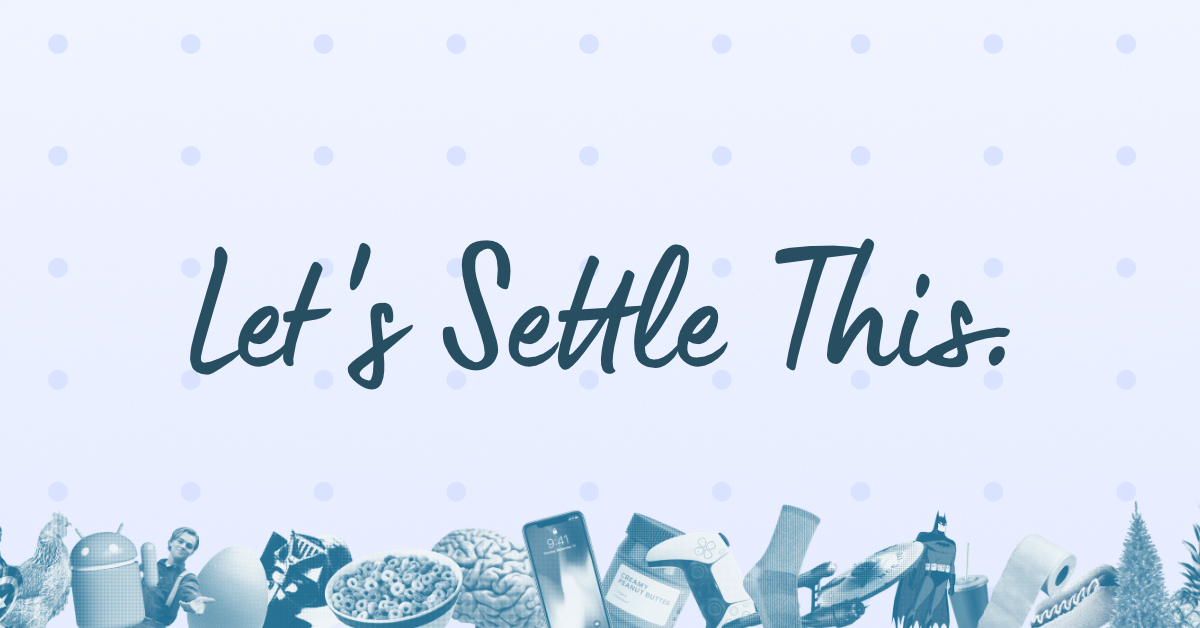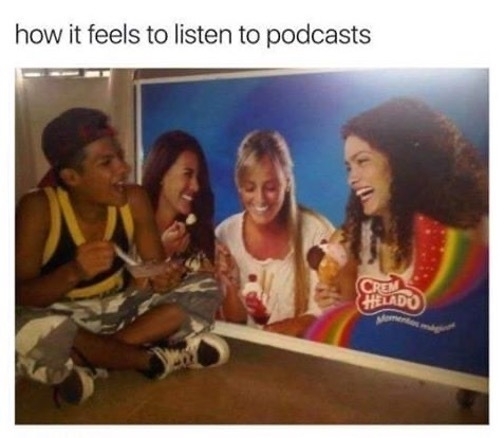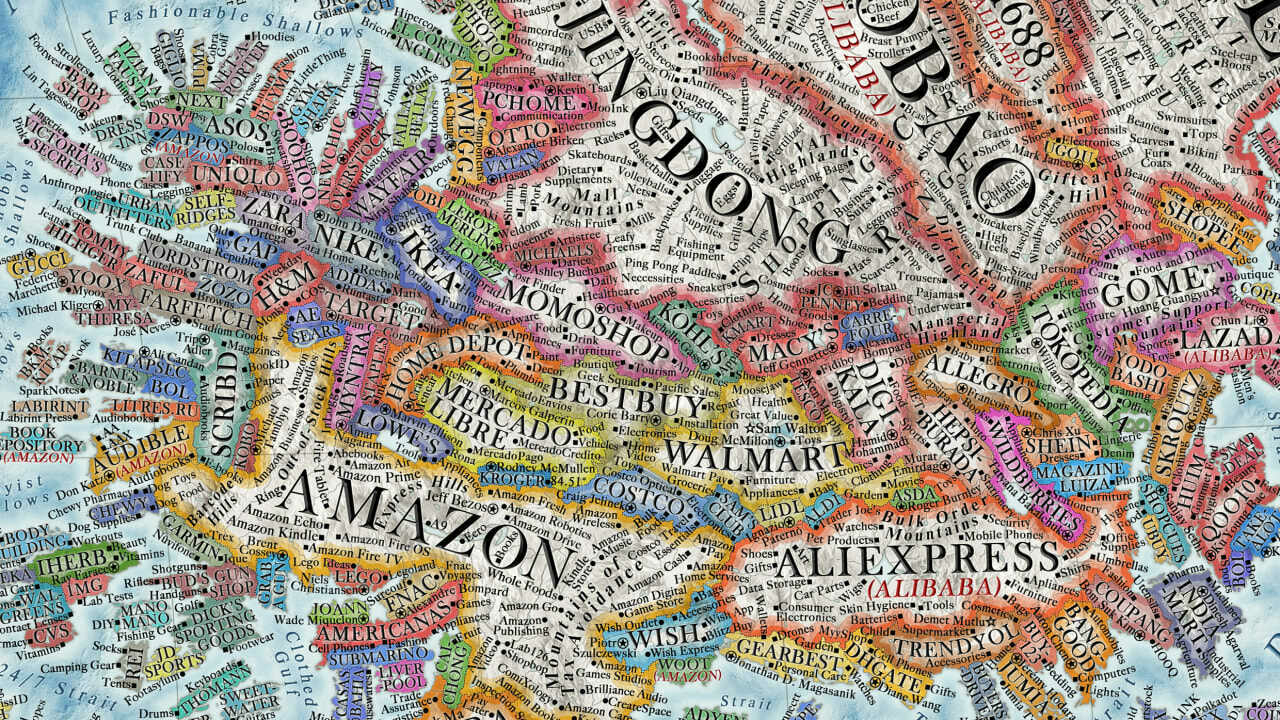What technology means in late capitalism
Anyone familiar with Guy Debord's Society of the Spectacle will appreciate this article by Jonathan Crary, author of the short but impressive 24/7 Capitalism.
Crary's argument is that our current status quo depends on a capital-fuelled extractive mikitary-industriiall complex that cannot be sustained. What comes next can't (isn't likely to look like) just a 'Green New Deal' version of it.

Any possible path to a survivable planet will be far more wrenching than most recognize or will openly admit. A crucial layer of the struggle for an equitable society in the years ahead is the creation of social and personal arrangements that abandon the dominance of the market and money over our lives together. This means rejecting our digital isolation, reclaiming time as lived time, rediscovering collective needs, and resisting mounting levels of barbarism, including the cruelty and hatred that emanate from online. Equally important is the task of humbly reconnecting with what remains of a world filled with other species and forms of life. There are innumerable ways in which this may occur and, although unheralded, groups and communities in all parts of the planet are moving ahead with some of these restorative endeavors.
However, many of those who understand the urgency of transitioning to some form of eco-socialism or no-growth post-capitalism carelessly presume that the internet and its current applications and services will somehow persist and function as usual in the future, alongside efforts for a habitable planet and for more egalitarian social arrangements. There is an anachronistic misconception that the internet could simply “change hands,” as if it were a mid-20th-century telecommunications utility, like Western Union or radio and TV stations, which would be put to different uses in a transformed political and economic situation.But the notion that the internet could function independently of the catastrophic operations of global capitalism is one of the stupefying delusions of this moment. They are structurally interwoven, and the dissolution of capitalism, when it happens, will be the end of a market-driven world shaped by the networked technologies of the present.
Of course, there will be means of communication in a post-capitalist world, as there always have been in every society, but they will bear little resemblance to the financialized and militarized networks in which we are entangled today. The many digital devices and services we use now are made possible through unending exacerbation of economic inequality and the accelerated disfiguring of the earth’s biosphere by resource extraction and needless energy consumption.
Your attention was stolen
I still find it hard to trust Johann Hari’s writing, but this is more introspective and covers a subject that we all know is an issue: attention.
For me, despite being ‘verified’ on Twitter and having what used to be considered a decent number of followers, I’ve deactivated my account. I think it’s for the last time. I’m so much calmer when not using it.
I realised that to heal my attention, it was not enough simply to strip out distractions. That makes you feel good at first – but then it creates a vacuum where all the noise was. I realised I had to fill the vacuum. To do that, I started to think a lot about an area of psychology I had learned about years before – the science of flow states. Almost everyone reading this will have experienced a flow state at some point. It’s when you are doing something meaningful to you, and you really get into it, and time falls away, and your ego seems to vanish, and you find yourself focusing deeply and effortlessly. Flow is the deepest form of attention human beings can offer. But how do we get there?Source: Your attention didn’t collapse. It was stolen | The Guardian
The life-changing difference of an internet connection
As someone who’s seemingly around the same age as the author of this post, I agree that the internet has made my life better. I didn’t have it anywhere near as hard as them while growing up, but my online connections (and research) have certainly helped me escape into a different life.
This is part of the story of how the internet changed my life for the better. I’m an early millennial and I was raised online. Through the internet, I found friends, support, and the human connection that I was lacking in real life. I also found valuable information that helped me help myself and sometimes help others. The key with information is always to effectively filter the good from the bad, which is a genuine life skill unto itself. My life today isn’t perfect, but it’s better than it’s ever been. My message to all the people out there who are struggling is to believe in yourself. If you help yourself and you let others help you, things are never hopeless.Source: The Internet Changed My Life | Pointers Gone Wild
Let's Settle This
This is good fun and, in fact, Laura and I used it to structure the upcoming Season 3 trailer for our podcast.
It's time to settle the endless internet debates.Source: Let's Settle This
Kith and kin
This is a great article about how the internet was going to save us from TV and now we’re looking for something to save us from the internet. What we actually need are stronger and deeper relationships with the people around us — our kith and kin.
We are conditioned to care about kin, to take life’s meaning from the relationships with those we know and love. But the psychological experience of fame, like a virus invading a cell, takes all of the mechanisms for human relations and puts them to work seeking more fame. In fact, this fundamental paradox—the pursuit through fame of a thing that fame cannot provide—is more or less the story of Donald Trump’s life: wanting recognition, instead getting attention, and then becoming addicted to attention itself, because he can’t quite understand the difference, even though deep in his psyche there’s a howling vortex that fame can never fill.Source: On the Internet, We’re Always Famous | The New YorkerThis is why famous people as a rule are obsessed with what people say about them and stew and rage and rant about it. I can tell you that a thousand kind words from strangers will bounce off you, while a single harsh criticism will linger. And, if you pay attention, you’ll find all kinds of people—but particularly, quite often, famous people—having public fits on social media, at any time of the day or night. You might find Kevin Durant, one of the greatest basketball players on the planet, possibly in the history of the game—a multimillionaire who is better at the thing he does than almost any other person will ever be at anything—in the D.M.s of some twenty something fan who’s talking trash about his free-agency decisions. Not just once—routinely! And he’s not the only one at all.
There’s no reason, really, for anyone to care about the inner turmoil of the famous. But I’ve come to believe that, in the Internet age, the psychologically destabilizing experience of fame is coming for everyone. Everyone is losing their minds online because the combination of mass fame and mass surveillance increasingly channels our most basic impulses—toward loving and being loved, caring for and being cared for, getting the people we know to laugh at our jokes—into the project of impressing strangers, a project that cannot, by definition, sate our desires but feels close enough to real human connection that we cannot but pursue it in ever more compulsive ways.
Parasocial relationships through digital media
I think we’ve all felt a close affinity and, dare I say, relationship with people who wouldn’t know who we were if we met them in real life. In fact, I’ve kind of experienced the other side of this due to my TEDx Talk and the TIDE podcast. People at events would come and talk to me as if they knew me.
It’s nice, in a way, although it makes for very one-sided conversations until you get to know people. I think it’s likely to happen again with the Tao of WAO podcast…
Over the past decade, it has become increasingly common for people to develop intense one-sided relationships with famous people on the internet. What are called parasocial relationships (meaning almost social, or perversely social) have spread almost everywhere. For example, John Mulaney fans share concern over his recently messy personal life as much as they laugh at his jokes. Fans of K-pop groups like Blackpink (called Blinks) and Twice (called Onces) flood YouTube videos with millions of comments in support of their favorite performers. (“Rosé has worked so hard for this moment, let’s support her as much as we can!!”) Zoomers goof off in the chat for hours watching Twitch livestreamers play Minecraft or PUBG. Even Peloton trainers are marketed as supporting us on our fitness journeys rather than coaches who simply encourage us to sweat.Source: Why Can’t We Be Friends | Real LifeThe hosts of podcasts in particular are the subject of these intense feelings of connection, as many observers, like Rachel Aroesti in this Guardian piece for instance, have pointed out. I have a few parasocial podcast obsessions myself, particularly the podcasting family the McElroy Brothers, who make the comedy advice show My Brother, My Brother and Me and the “actual play” Dungeons and Dragons podcast The Adventure Zone, among other things. I follow fan subreddits, chuckle at McElroy memes, and buy merch to support the good good boys (as they are called). I have become as much a fan of the McElroys “themselves” as I am a fan of their content. I know their childhood nicknames, their struggles with depression and social anxiety, and I know about the time Justin got fired from Blockbuster for stealing a Fight Club DVD.
Criminals' right to be forgotten
This is interesting: the Associated Press are no longer going to name people involved in minor crimes. I have to agree with their rationale.
These minor stories, which only cover an arrest, have long lives on the internet. AP’s broad distribution network can make it difficult for the suspects named in such items to later gain employment or just move on in their lives.Source: AP Definitive Source | Why we’re no longer naming suspects in minor crime storiesBroadly speaking, when evaluating such stories, we should consider first whether the story is worthy of our news report, and if distributing it is indeed useful to our members and customers. If the answer is yes, in keeping with AP’s commitment to fairness, we now will no longer name suspects in brief stories about minor crimes in which there is little chance AP will provide coverage beyond the initial arrest.
Nostalgia, friction, and read/write literacy
I probably need to revisit this (and the references) but I really enjoyed reading Silvio Lorusso’s essay on computer agency and behaviour.
Alan Kay’s pioneering work on interfaces was guided by the idea that the computer should be a medium rather than a vehicle, its function not pre-established (like that of the car or the television) but reformulable by the user (like in the case of paper and clay). For Kay, the computer had to be a general-purpose device. He also elaborated a notion of computer literacy which would include the ability to read the content of a medium (the tools and materials generated by others) but also the ability to write in a medium. Writing on the computer medium would not only include the production of materials, but also of tools. That is for Kay authentic computer literacy: “In print writing, the tools you generate are rhetorical; they demonstrate and convince. In computer writing, the tools you generate are processes; they simulate and decide.”Source: The User Condition, Silvio Lorusso
The world's most popular websites, mapped
Years ago, iA had a map of the web which was much smaller and less intricate than this. My son had it up on his bedroom wall. The digital world is a lot more complex and a lot less English-speaking that it once was!
“As internet access has spread rapidly throughout developing countries in the last decade, the popularity of non-English websites has increased considerably—about a third of the world’s most visited 50 websites are based in China, with Tmall, QQ, Baidu, or Sohu surpassing Amazon, Yahoo, and even Facebook in terms of traffic,” Vargic says. “There is also a much larger [number] of popular Indonesian, Indian, Iranian, Brazilian, and other sites than even [a few] years ago.”Source: Think you know the world's most popular websites? Think again | Fast Company
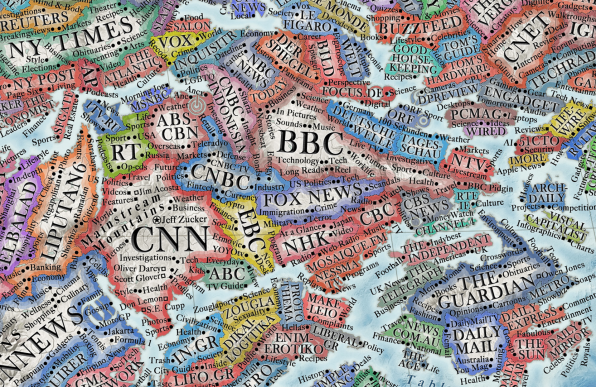
Rat Race 2.0
An insightful post which considers the ways in which current working generations can’t “quit the rat race” in the way previous generations could (or could aspire to doing). You’re either plugged into the network, or you die.
The internet matching machine is fuelled by content. The more of it you produce, the more likely you are to reach the people who'd value what you have to offer. Writing a tweet or uploading a video costs nothing. It might be embarrassing or a waste of time, but that’s about it. In that sense, the downside of playing the game is indeed limited.Source: No Floor, No CeilingBut focusing on the risks within the game obscures a much bigger problem: The game is no longer optional. Everyone must play. We have little to lose because we already lost everything: Stable jobs, affordable homes, education that lasts a lifetime, and worry-free retirement are no longer an option. Even money itself ain’t what it used to be. It loses value by simply sitting in the bank.
This is partly a result of various policy failures. But ultimately, it is due to our current stage of technological development. Information moves around and knowledge becomes obsolete faster than ever. Geographical constraints no longer protect the average from the best.
We are all in one giant global arena. We can win world-scale prizes. But we have to play. And even when we win, the rewards tend to be fleeting: they can sustain us for a while, but at any moment, the algorithms might change, or another clever fellow can whisk our followers-customers away. We are as anxious in victory as we are in defeat, and our winnings can only be used to continue to play.
It would not be better if things happened to men just as they wish

🕸️ A plan to redesign the internet could make apps that no one controls — "Rewinding the internet is not about nostalgia. The dominance of a few companies, and the ad-tech industry that supports them, has distorted the way we communicate—pulling public discourse into a gravity well of hate speech and misinformation—and upended basic norms of privacy. There are few places online beyond the reach of these tech giants, and few apps or services that thrive outside of their ecosystems."
It is, inevitably, focused on crypto tokens, which provide an economic incentive. If only there was a way to fix things that didn't seem to be driven by making the inventors obscenely rich?
🤯 Can’t Get You Out of My Head review – Adam Curtis's 'emotional history' is dazzling — "Whether you are convinced or not by the working hypothesis, Can’t Get You Out of My Head is a rush. It is vanishingly rare to be confronted by work so dense, so widely searching and ambitious in scope, so intelligent and respectful of the audience’s intelligence, too. It is rare, also, to watch a project over which one person has evidently been given complete creative freedom and control without any sense of self-indulgence creeping in."
Adam Curtis' documentary 'Hypernormalisation' blew my mind, and I'm already enjoying the first of these six hour-long documentaries.
💸 Why Mastercard is bringing crypto onto its network — "We are preparing right now for the future of crypto and payments, announcing that this year Mastercard will start supporting select cryptocurrencies directly on our network. This is a big change that will require a lot of work. We will be very thoughtful about which assets we support based on our principles for digital currencies, which focus on consumer protections and compliance."
Companies like Mastercard haven't got much of a choice here: they have to either get with the program or risk being replaced. Hopefully it will help simplify what is a confusing picture at the moment. I've had problems recently withdrawing money from cryptocurrency exchanges to my bank accounts.
👉 Hovering over decline and clicking accept — "There's so much written about self-care. And much of it starts from a good place but falls apart the moment things get hectic. But this idea of Past You working in service of Future You isn't a one-off. It's not a massage you sneak in one Friday morning. The secret hope that 60 minutes of hot rocks will counteract 12 hours a day hunched over a laptop."
Some good advice in here from the Nightingales, whose book is also worth a read.
👨💻 Praxis and the Indieweb — "If a movement has at its core a significant barrier to entry, then it is always exclusionary. While we’ve already seen that the movement has barriers at ability and personality, it is also true that, as of 2021, there is a significant barrier in terms of monetary resources."
As I said a year ago in this microcast, I have issues with the IndieWeb and why I'm more of a fan of decentralisation through federation.
Quotation-as-title by Heraclitus. Image by Saad Chaudhry.
There are many things we despise in order that we may not have to despise ourselves
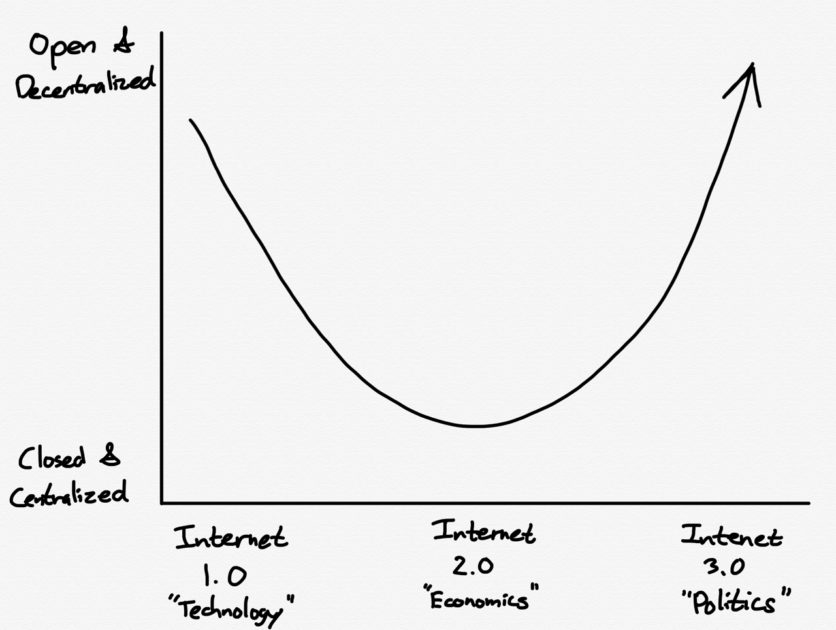
🇺🇸 Well, that was expected — "I’ve recorded this here since it feels like the chronology of events and the smaller details are already evaporating, and this helps me wrap my head around a tiny fraction of it. If you happen to read this, don’t take this at face value (nor anything else on the web for that matter). Do your own research and correct me if you think any of the timestamps are wrong."
📺 Fox News and the real insurrection — "After Democrats said they planned to impeach Trump again, Fox opinionators echoed the risible Republican talking point that such a move would be provocative; after Twitter banned Trump, they pivoted to bash Big Tech. Yesterday morning, Jeanine Pirro compared Amazon’s decision to boot Parler, an app popular among right-wing extremists, from its web-hosting services to Kristallnacht—the night, in 1938, when Nazis in Germany killed around one hundred Jewish people and arrested tens of thousands more"
₿ Lost Passwords Lock Millionaires Out of Their Bitcoin Fortunes — "Of the existing 18.5 million Bitcoin, around 20 percent — currently worth around $140 billion — appear to be in lost or otherwise stranded wallets, according to the cryptocurrency data firm Chainalysis. Wallet Recovery Services, a business that helps find lost digital keys, said it had gotten 70 requests a day from people who wanted help recovering their riches, three times the number of a month ago."
🕸️ Pirated Academic Database Sci-Hub Is Now on the ‘Uncensorable Web’ — "As evidenced by Sci-Hub’s own problems, the decentralized web is being built out of fears of deplatforming. As the internet’s access points are increasingly centralized in the hands of a few actors, certain applications – most recently, Twitter-alternative Parler – have faced censorship at the hands of web server providers, app stores and DNS certificate authorities."
🏛️ Internet 3.0 and the Beginning of (Tech) History — Here technology itself will return to the forefront: if the priority for an increasing number of citizens, companies, and countries is to escape centralization, then the answer will not be competing centralized entities, but rather a return to open protocols. This is the only way to match and perhaps surpass the R&D advantages enjoyed by centralized tech companies; open technologies can be worked on collectively, and forked individually, gaining both the benefits of scale and inevitability of sovereignty and self-determination.
Quotation-as-title by Vauvenargues. Image from bottom-linked post.
We all think we are exceptional, and are surprised to find ourselves criticised just like anyone else

🏞️ To Mend a Broken Internet, Create Online Parks
👶 Babies' random choices become their preferences
😨 Dystopia as Clickbait: Science Fiction, Doomscrolling, and Reviving the Idea of the Future
👃 Why Are the Noses Broken on Egyptian Statues?
🧙♀️ New online database tracks historic 'witch marks' carved into England's trees
Quotation-as-title by Comtesse Diane. Image from top-linked post.
To be in process of change is not an evil, any more than to be the product of change is a good
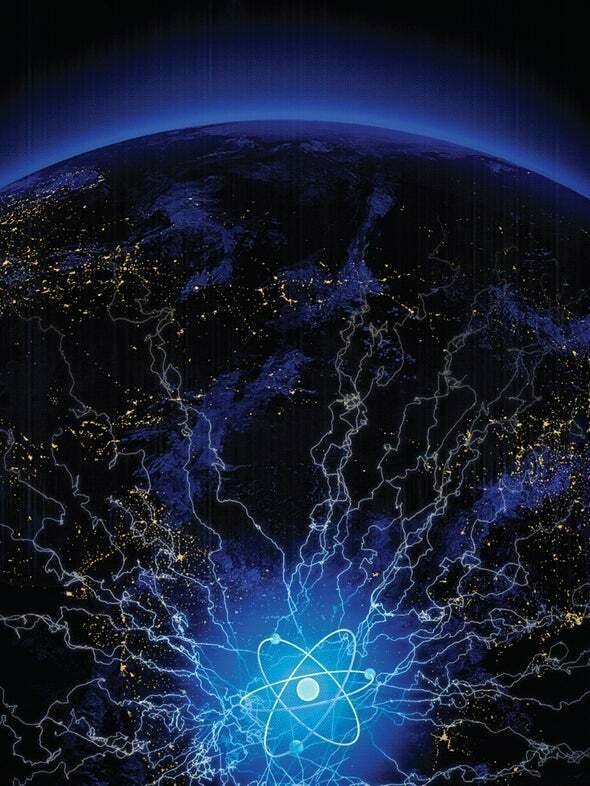
🌐 Unlimited Information Is Transforming Society
📱 Your Smartphone Can Tell If You’re Drunk-Walking
🚸 Britain's obsession with school uniform reinforces social divisions
🤖 Robot Teachers, Racist Algorithms, and Disaster Pedagogy
Quotation-as-title by Marcus Aurelius. Image from top linked post.
Friday featherings
Behold! The usual link round-up of interesting things I've read in the last week.
Feel free to let me know if anything particularly resonated with you via the comments section below...
Part I - What is a Weird Internet Career?
Weird Internet Careers are the kinds of jobs that are impossible to explain to your parents, people who somehow make a living from the internet, generally involving a changing mix of revenue streams. Weird Internet Career is a term I made up (it had no google results in quotes before I started using it), but once you start noticing them, you’ll see them everywhere.
Gretchen McCulloch (All Things Linguistic)
I love this phrase, which I came across via Dan Hon's newsletter. This is the first in a whole series of posts, which I am yet to explore in its entirety. My aim in life is now to make my career progressively more (internet) weird.
Nearly half of Americans didn’t go outside to recreate in 2018. That has the outdoor industry worried.
While the Outdoor Foundation’s 2019 Outdoor Participation Report showed that while a bit more than half of Americans went outside to play at least once in 2018, nearly half did not go outside for recreation at all. Americans went on 1 billion fewer outdoor outings in 2018 than they did in 2008. The number of adolescents ages 6 to 12 who recreate outdoors has fallen four years in a row, dropping more than 3% since 2007
The number of outings for kids has fallen 15% since 2012. The number of moderate outdoor recreation participants declined, and only 18% of Americans played outside at least once a week.
Jason Blevins (The Colorado Sun)
One of Bruce Willis' lesser-known films is Surrogates (2009). It's a short, pretty average film with a really interesting central premise: most people stay at home and send their surrogates out into the world. Over a decade after the film was released, a combination of things (including virulent viruses, screen-focused leisure time, and safety fears) seem to suggest it might be a predictor of our medium-term future.
I’ll Never Go Back to Life Before GDPR
It’s also telling when you think about what lengths companies have had to go through to make the EU versions of their sites different. Complying with GDPR has not been cheap. Any online business could choose to follow GDPR by default across all regions and for all visitors. It would certainly simplify things. They don’t, though. The amount of money in data collection is too big.
Jill Duffy (OneZero)
This is a strangely-titled article, but a decent explainer on what the web looks and feels like to those outside the EU. The author is spot-on when she talks about how GDPR and the recent California Privacy Law could be applied everywhere, but they're not. Because surveillance capitalism.
You Are Now Remotely Controlled
The belief that privacy is private has left us careening toward a future that we did not choose, because it failed to reckon with the profound distinction between a society that insists upon sovereign individual rights and one that lives by the social relations of the one-way mirror. The lesson is that privacy is public — it is a collective good that is logically and morally inseparable from the values of human autonomy and self-determination upon which privacy depends and without which a democratic society is unimaginable.
Shoshana Zuboff (The New York Times)
I fear that the length of Zuboff's (excellent) book on surveillance capitalism, her use of terms in this article such as 'epistemic inequality, and the subtlety of her arguments, may mean that she's preaching to the choir here.
How to Raise Media-Savvy Kids in the Digital Age
The next time you snap a photo together at the park or a restaurant, try asking your child if it’s all right that you post it to social media. Use the opportunity to talk about who can see that photo and show them your privacy settings. Or if a news story about the algorithms on YouTube comes on television, ask them if they’ve ever been directed to a video they didn’t want to see.
Meghan Herbst (WIRED)
There's some useful advice in this WIRED article, especially that given by my friend Ian O'Byrne. The difficulty I've found is when one of your kids becomes a teenager and companies like Google contact them directly telling them they can have full control of their accounts, should they wish...
Control-F and Building Resilient Information Networks
One reason the best lack conviction, though, is time. They don’t have the time to get to the level of conviction they need, and it’s a knotty problem, because that level of care is precisely what makes their participation in the network beneficial. (In fact, when I ask people who have unintentionally spread misinformation why they did so, the most common answer I hear is that they were either pressed for time, or had a scarcity of attention to give to that moment)
But what if — and hear me out here — what if there was a way for people to quickly check whether linked articles actually supported the points they claimed to? Actually quoted things correctly? Actually provided the context of the original from which they quoted
And what if, by some miracle, that function was shipped with every laptop and tablet, and available in different versions for mobile devices?
This super-feature actually exists already, and it’s called control-f.
Roll the animated GIF!
Mike Caulfield (Hapgood)
I find it incredible, but absolutely believable, that only around 10% of internet users know how to use Ctrl-F to find something within a web page. On mobile, it's just as easy, as there's an option within most (all?) browsers to 'search within page'. I like Mike's work, as not only is it academic, it's incredibly practical.
EdX launches for-credit credentials that stack into bachelor's degrees
The MicroBachelors also mark a continued shift for EdX, which made its name as one of the first MOOC providers, to a wider variety of educational offerings
In 2018, EdX announced several online master's degrees with selective universities, including the Georgia Institute of Technology and the University of Texas at Austin.
Two years prior, it rolled out MicroMasters programs. Students can complete the series of graduate-level courses as a standalone credential or roll them into one of EdX's master's degrees.
That stackability was something EdX wanted to carry over into the MicroBachelors programs, Agarwal said. One key difference, however, is that the undergraduate programs will have an advising component, which the master's programs do not.
Natalie Schwartz (Education Dive)
This is largely a rewritten press release with a few extra links, but I found it interesting as it's a concrete example of a couple of things. First, the ongoing shift in Higher Education towards students-as-customers. Second, the viability of microcredentials as a 'stackable' way to build a portfolio of skills.
Note that, as a graduate of degrees in the Humanities, I'm not saying this approach can be used for everything, but for those using Higher Education as a means to an end, this is exactly what's required.
How much longer will we trust Google’s search results?
Today, I still trust Google to not allow business dealings to affect the rankings of its organic results, but how much does that matter if most people can’t visually tell the difference at first glance? And how much does that matter when certain sections of Google, like hotels and flights, do use paid inclusion? And how much does that matter when business dealings very likely do affect the outcome of what you get when you use the next generation of search, the Google Assistant?
Dieter Bohn (The Verge)
I've used DuckDuckGo as my go-to search engine for years now. It used to be that I'd have to switch to Google for around 10% of my searches. That's now down to zero.
Coaching – Ethics
One of the toughest situations for a product manager is when they spot a brewing ethical issue, but they’re not sure how they should handle the situation. Clearly this is going to be sensitive, and potentially emotional. Our best answer is to discover a solution that does not have these ethical concerns, but in some cases you won’t be able to, or may not have the time.
[...]
I rarely encourage people to leave their company, however, when it comes to those companies that are clearly ignoring the ethical implications of their work, I have and will continue to encourage people to leave.
Marty Cagan (SVPG)
As someone with a sensitive radar for these things, I've chosen to work with ethical people and for ethical organisations. As Cagan says in this post, if you're working for a company that ignores the ethical implications of their work, then you should leave. End of story.
Image via webcomic.name
Friday foggings
I've been travelling this week, so I've had plenty of time to read and digest a whole range of articles. In fact, because of the luxury of that extra time, I decided to write some comments about each link, as well as the usual quotation.
Let me know what you think about this approach. I may not have the bandwidth to do it every week, but if it's useful, I'll try and prioritise it. As ever, particularly interested in hearing from supporters!
Education and Men without Work (National Affairs) — “Unlike the Great Depression, however, today's work crisis is not an unemployment crisis. Only a tiny fraction of workless American men nowadays are actually looking for employment. Instead we have witnessed a mass exodus of men from the workforce altogether. At this writing, nearly 7 million civilian non-institutionalized men between the ages of 25 and 54 are neither working nor looking for work — over four times as many as are formally unemployed.”
This article argues that the conventional wisdom, that men are out of work because of a lack of education, may be based on false assumptions. In fact, a major driver seems to be the number of men (more than 50% of working-age men, apparently) who live in child-free homes. What do these men end up doing with their time? Many of them are self-medicating with drugs and screens.
Fresh Cambridge Analytica leak ‘shows global manipulation is out of control’ (The Guardian) — “More than 100,000 documents relating to work in 68 countries that will lay bare the global infrastructure of an operation used to manipulate voters on “an industrial scale” are set to be released over the next months.”
Sadly, I think the response to these documents will be one of apathy. Due to the 24-hour news cycle and the stream of 'news' on social networks, the voting public grow tired of scandals and news stories that last for months and years.
Funding (Sussex Royals) — “The Sovereign Grant is the annual funding mechanism of the monarchy that covers the work of the Royal Family in support of HM The Queen including expenses to maintain official residences and workspaces. In this exchange, The Queen surrenders the revenue of the Crown Estate and in return, a portion of these public funds are granted to The Sovereign/The Queen for official expenditure.”
I don't think I need to restate my opinions on the Royal Family, privilege, and hierarchies / coercive power relationships of all shapes and sizes. However, as someone pointed out on Mastodon, this page by 'Harry and Meghan' is quietly subversive.
How to sell good ideas (New Statesman) — “It is true that [Malcolm] Gladwell sometimes presses his stories too militantly into the service of an overarching idea, and, at least in his books, can jam together materials too disparate to cohere (Poole referred to his “relentless montage”). The New Yorker essay, which constrains his itinerant curiosity, is where he does his finest work (the best of these are collected in 2009’s What The Dog Saw). For the most part, the work of his many imitators attests to how hard it is to do what he does. You have to be able to write lucid, propulsive prose capable of introducing complex ideas within a magnetic field of narrative. You have to leave your desk and talk to people (he never stopped being a reporter). Above all, you need to acquire an extraordinary eye for the overlooked story, the deceptively trivial incident, the minor genius. Gladwell shares the late Jonathan Miller’s belief that “it is in the negligible that the considerable is to be found”.”
A friend took me to see Gladwell when he was in Newcastle-upon-Tyne touring with 'What The Dog Saw'. Like the author of this article, I soon realised that Gladwell is selling something quite different to 'science' or 'facts'. And so long as you're OK with that, you can enjoy (as I do) his podcasts and books.
Just enough Internet: Why public service Internet should be a model of restraint (doteveryone) — “We have not yet done a good job of defining what good digital public service really looks like, of creating digital charters that match up to those of our great institutions, and it is these statements of values and ways of working – rather than any amount of shiny new technology – that will create essential building blocks for the public services of the future.”
While I attended the main MozFest weekend event, I missed the presentation and other events that happened earlier in the week. I definitely agree with the sentiment behind the transcript of this talk by Rachel Coldicutt. I'm just not sure it's specific enough to be useful in practice.
Places to go in 2020 (Marginal Revolution) — “Here is the mostly dull NYT list. Here is my personal list of recommendations for you, noting I have not been to all of the below, but I am in contact with many travelers and paw through a good deal of information."
This list by Tyler Cowen is really interesting. I haven't been to any of the places on this list, but I now really want to visit Eastern Bali and Baku in Azerbaijan.
Reasons not to scoff at ghosts, visions and near-death experiences (Aeon) — “Sure, the dangers of gullibility are evident enough in the tragedies caused by religious fanatics, medical quacks and ruthless politicians. And, granted, spiritual worldviews are not good for everybody. Faith in the ultimate benevolence of the cosmos will strike many as hopelessly irrational. Yet, a century on from James’s pragmatic philosophy and psychology of transformative experiences, it might be time to restore a balanced perspective, to acknowledge the damage that has been caused by stigma, misdiagnoses and mis- or overmedication of individuals reporting ‘weird’ experiences. One can be personally skeptical of the ultimate validity of mystical beliefs and leave properly theological questions strictly aside, yet still investigate the salutary and prophylactic potential of these phenomena.”
I'd happily read a full-length book on this subject, as it's a fascinating area. The tension between knowing that much/all of the phenomena is reducible to materiality and mechanics may explain what's going on, but it doesn't explain it away...
Surveillance Tech Is an Open Secret at CES 2020 (OneZero) — “Lowe offered one explanation for why these companies feel so comfortable marketing surveillance tech: He says that the genie can’t be put back in the bottle, so barring federal regulation that bans certain implementations, it’s increasingly likely that some company will fill the surveillance market. In other words, if Google isn’t going to work with the cops, Amazon will. And even if Amazon decides not to, smaller companies out of the spotlight still will.”
I suppose it should come as no surprise that, in this day and age, companies like Cyberlink, previously known for their PowerDVD software, have moved into the very profitable world of surveillance capitalism. What's going to stop its inexorable rise? I can only think of government regulation (with teeth).
‘Techlash’ Hits College Campuses (New York Times) — “Some recent graduates are taking their technical skills to smaller social impact groups instead of the biggest firms. Ms. Dogru said that some of her peers are pursuing jobs at start-ups focused on health, education and privacy. Ms. Harbour said Berkeley offers a networking event called Tech for Good, where alumni from purpose-driven groups like Code for America and Khan Academy share career opportunities.”
I'm not sure this is currently as big a 'movement' as suggested in the article, but I'm glad the wind is blowing in this direction. As with other ethically-dubious industries, companies involved in surveillance capitalism will have to pay people extraordinarily well to put aside their moral scruples.
Tradition is Smarter Than You Are (The Scholar's Stage) — “To extract resources from a population the state must be able to understand that population. The state needs to make the people and things it rules legible to agents of the government. Legibility means uniformity. States dream up uniform weights and measures, impress national languages and ID numbers on their people, and divvy the country up into land plots and administrative districts, all to make the realm legible to the powers that be. The problem is that not all important things can be made legible. Much of what makes a society successful is knowledge of the tacit sort: rarely articulated, messy, and from the outside looking in, purposeless. These are the first things lost in the quest for legibility. Traditions, small cultural differences, odd and distinctive lifeways... are all swept aside by a rationalizing state that preserves (or in many cases, imposes) only what it can be understood and manipulated from the 2,000 foot view. The result... are many of the greatest catastrophes of human history.”
One of the books that's been on my 'to-read' list for a while is 'Seeing Like a State', written by James C. Scott and referenced in this article. I'm no believer in tradition for the sake of it but, I have to say, that a lot of the superstitions of my maternal grandmother, and a lot of the rituals that come with religion are often very practical in nature.
Image by Michael Schlegel (via kottke.org)
